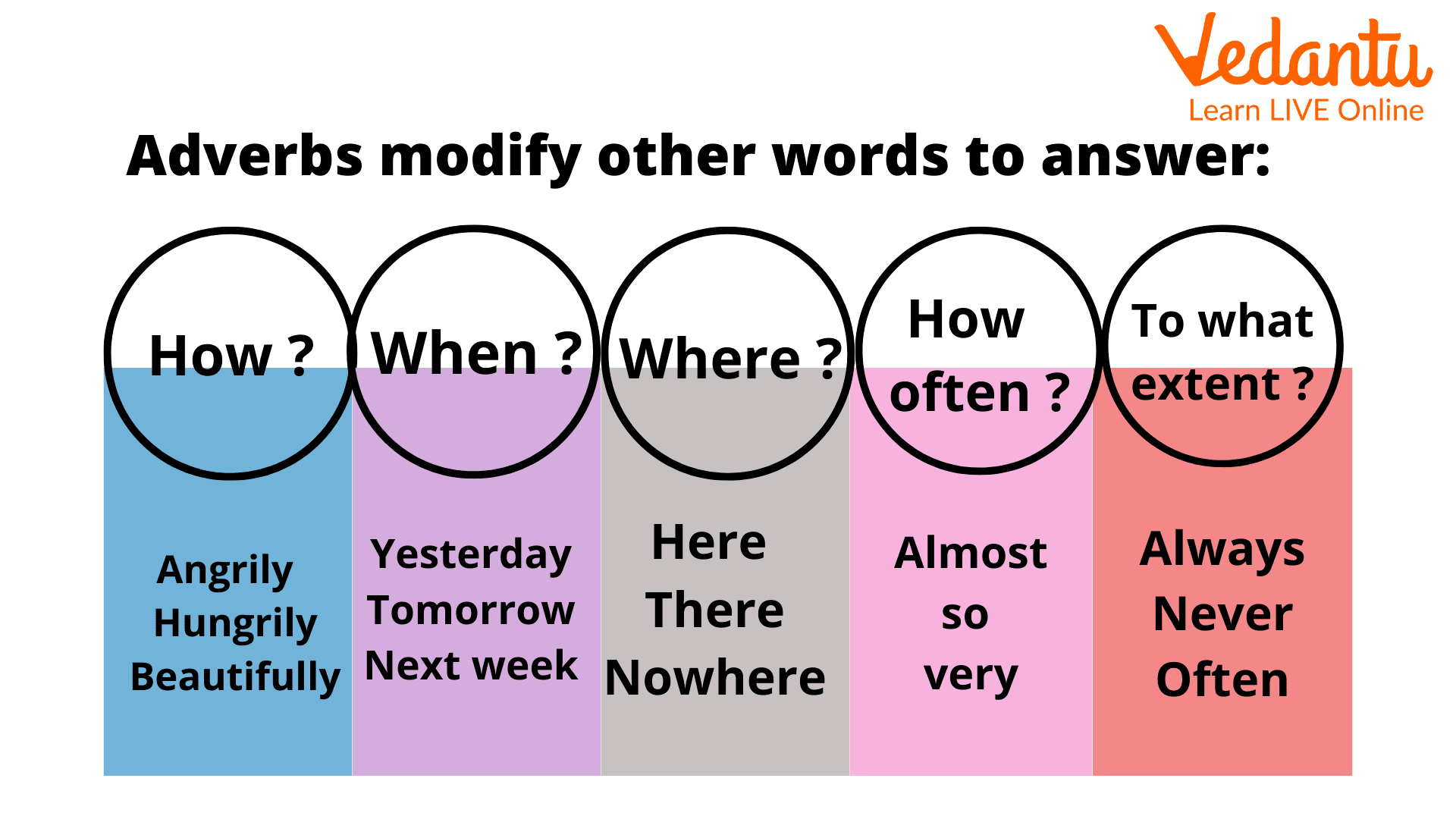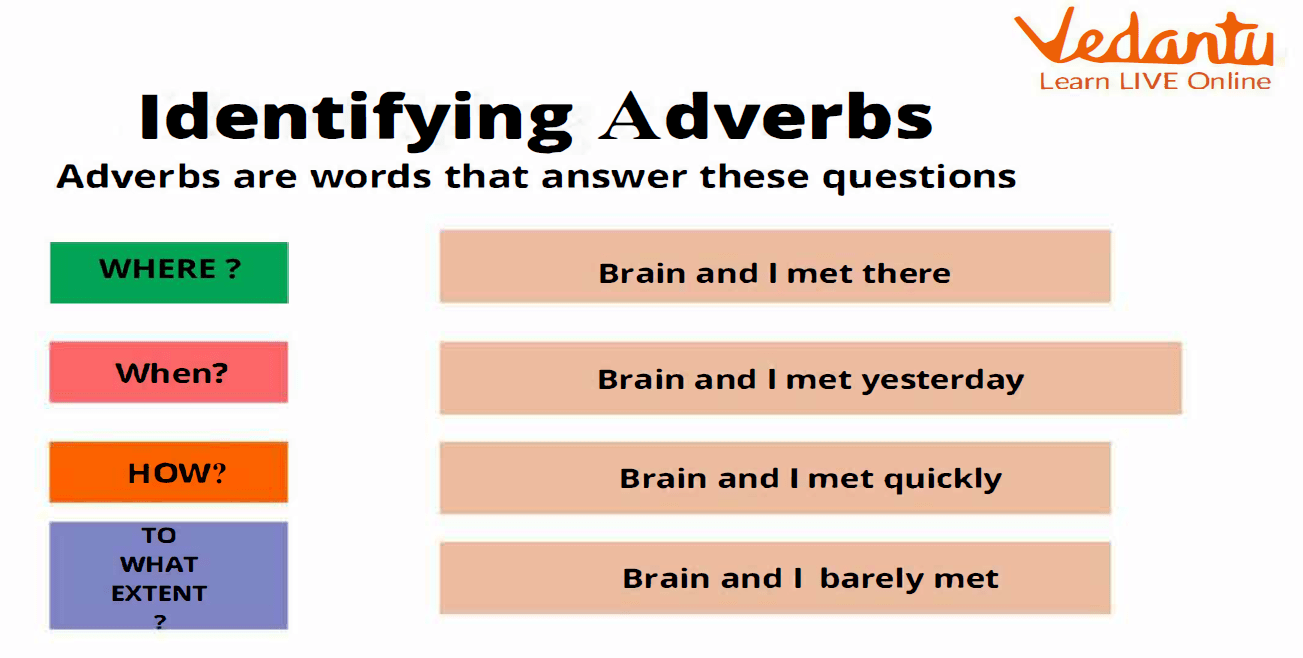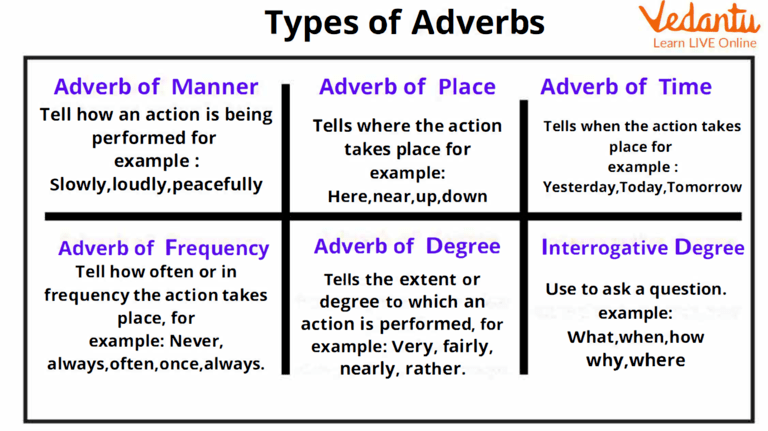




How Do Adverbs Work? Simple Tips and Engaging Activities for Kids
Mariam speaks softly.
James is strangely quiet today.
He plays music loudly.
You need to walk very fast to reach school on time.
In the above sentences, some words have been highlighted in bold. These words are describing a verb, an adjective or an adverb. Such words are known as adverbs. So what are adverbs? An adverb is a word that modifies or tells us more about an adjective, a verb or another adverb. Take a look at the above sentences. Here, the words softly, strangely, loudly and very are adverbs that tell us more about the words speaks (verb), quiet (adjective), plays (verb) and fast (adverb).
Most adverbs end in -ly, so it is quite easy to identify adverbs in a sentence. All you need to do is search for the word ending in -ly and see if it gives you more information about the adjective, verb or adverb in the sentence. You can also ask a few questions to yourself when trying to identify the adverb in a sentence. An adverb answers questions such as where, when, how, to what extent, how often or frequently.

Adverbs tell us how, when where, how often and to what extent

Questions that help to identify adverbs in a sentence
Types of Adverbs
Now that you have a fair idea of what adverbs are, let’s delve into the various types of adverbs for kids. There are six major types of adverbs that we are going to discuss in this article. These include the following:
Adverb of manner
Adverb of place
Adverb of time
Adverb of frequency
Adverb of degree
Interrogative adverbs

6 Types of Adverbs for kids
Adverb of Manner
Let’s start with the first type of adverbs, which is the adverb of manner. An adverb of manner tells us how or in what manner an action is performed. For example:
He drives slowly while crossing the school.
Lata sings sweetly.
Amy folded the clothes neatly.
The adverbs slowly, sweetly and neatly describe how the actions of driving, singing and folding happen.
Adverb of Place
Adverbs of place let us know the place or location where the action takes place. For example:
The monkey climbed up the tree.
We will have dinner at the restaurant near our house.
The party is being held downstairs.
In the above sentences, up, near and downstairs are adverbs that tell us about the exact place.
Adverb of Time
This type of adverb tells us when an action is happening. Take a look at the examples below.
Derek returned home late from the party.
I was supposed to submit the assignment yesterday.
The sky is clear today.
In these sentences, the adverbs late, yesterday and today give us an idea of the time of the action.
Adverb of Frequency
Frequency adverbs inform us how often or frequently an action takes place. For example:
Julia is never on time for the meeting.
My aunt always carries a band-aid in her handbag.
Jack’s brother had visited the Maldives once.
The words never, always and once in the above sentences are adverbs of frequency that inform us about how frequently the action occurs.
Adverb of Degree
These adverbs inform us of the degree or extent of the action that takes place. Consider the below example:
It is nearly time for the guests to arrive.
Oscar’s painting is very beautiful.
The marketplace is rather far from Sophie’s house.
In the above examples, nearly, very and rather are adverbs of degree that give a fair idea about the extent to which the action happens.
Interrogative Adverb
These adverbs are used to ask questions. Let’s take a look at a few examples:
Why is it taking so long for the package to arrive?
Where can we apply for the scheme?
How far is the airport from the train station?
The adverbs why, where and how in the above examples aim to ask questions and hence are considered as interrogative adverbs.
Exercises on Adverbs for Kids
Like it is said, practice makes an individual perfect. Therefore, just to be sure that you have understood and followed the lesson, we have two practice exercises on adverbs for kids. Go ahead and try them out!
I. Choose the correct adverb from the box to fill in the blanks:
Ana is always appreciated for writing her projects________.
Although Harry works hard, he is paid________.
We________ visit the museum in our city.
The fair is going to be held_______.
Ryan’s interview was over_________.
Answers:
Neatly
Poorly
Seldom
Today
Quickly
II. Identify the type of adverb underlined in each sentence.
Very few rulers treated their subjects mercifully.
The protestors are going to start marching from here.
The NGO holds the lottery weekly.
The teacher is rarely absent.
The orchestra performed well in tonight’s show.
When are the college elections being held?
Answers:
Adverb of manner
Adverb of place
Adverb of time
Adverb of frequency
Adverb of degree
Interrogative adverbs
Conclusion
Adverbs are an important part of speech. Although it might seem a little tricky to locate one, with this article, we hope that you will find adverbs as easy as the other parts of speech. Having a good grip on adverbs will help you form grammatically correct and meaningful sentences. You can check out the worksheets on our website for further practise or learn about the other parts of speech.
FAQs on What Are Adverbs? A Kid-Friendly Guide With Fun Examples
1. Are adverbs also describing words like adjectives?
Yes, both adverbs and adjectives are describing words. Adjectives describe nouns whereas adverbs tell us more about a verb, an adjective or another adverb.
2. What are the 6 major types of adverbs?
There are 6 main types of adverbs. These include adverbs of manner, adverbs of place, adverbs of time, adverbs of frequency, adverbs of degree and interrogative adverbs.









